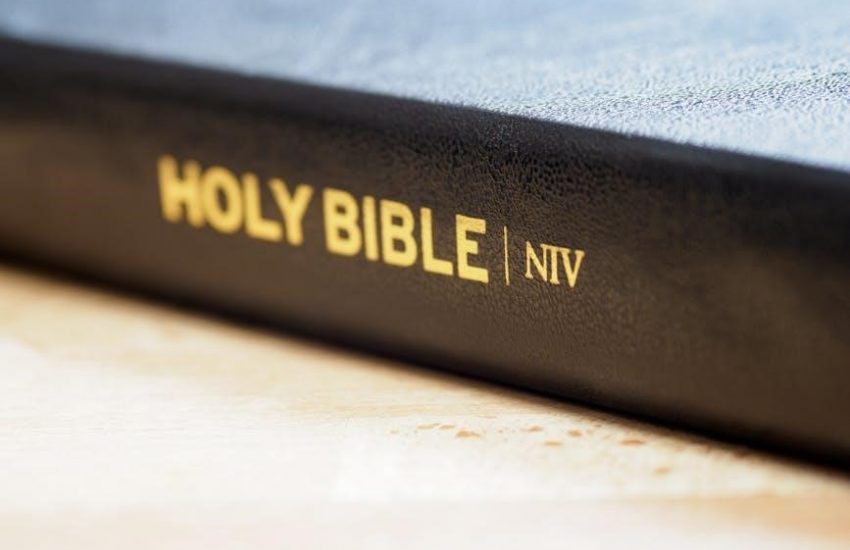Definition and Purpose of a New Jersey Last Will and Testament
A New Jersey Last Will and Testament is a legal document outlining asset distribution after death, as per Title 3B, ensuring wishes are respected and estate matters are formally addressed․
1․1․ Overview of the Document
A New Jersey Last Will and Testament is a formal, legally binding document that allows individuals to outline how their assets, property, and possessions should be distributed after their death․ It ensures that the Testator’s wishes are respected and provides clarity on the distribution process․ The document typically includes designations for beneficiaries, appointment of an executor to manage the estate, and instructions for settling debts and expenses․ It also addresses funeral preferences and guardianship for minors or dependents, offering a comprehensive framework for estate management and final wishes․
1․2․ Legal Recognition in New Jersey
A New Jersey Last Will and Testament is legally recognized under Title 3B of the New Jersey Statutes, which governs the creation, execution, and validity of wills within the state․ For a will to be legally recognized, it must be signed by the Testator and witnessed by two individuals, ensuring its authenticity and compliance with state law․ The document is then validated through the probate process, where the court confirms its legality and appoints the executor to carry out the Testator’s instructions․ This legal framework ensures the will is enforceable and respected according to New Jersey law․
1․3․ Key Components of the Will
A New Jersey Last Will and Testament includes essential elements to ensure clarity and validity․ It identifies the Testator, declares their intent to revoke prior wills, and outlines asset distribution․ Beneficiaries are named, and specific gifts or shares of the estate are allocated․ The will appoints an executor to manage the estate, pay debts, and carry out instructions․ Funeral and burial preferences may also be stated․ Guardianship provisions for minors or dependents can be included, along with instructions for tax payments and estate administration․ Witnesses’ signatures are required to validate the document, ensuring legal compliance and enforceability․

Legal Requirements for a Valid Will in New Jersey
In New Jersey, a valid will requires the testator to be at least 18 years old, of sound mind, and must be signed with two witnesses․
2․1․ Who Can Create a Will in New Jersey?
In New Jersey, any individual who is at least 18 years old and of sound mind can create a valid Last Will and Testament․ The testator must have the mental capacity to understand the nature of the act and the extent of their assets․ This legal requirement ensures that the person creating the will can make informed decisions about the distribution of their estate․ The will must be signed by the testator and witnessed by two individuals, as per New Jersey state laws, to validate the document and ensure its enforceability in court․
2․2․ Signature and Witness Requirements
A New Jersey Last Will and Testament must be signed by the testator and witnessed by two individuals․ The testator must sign in the presence of both witnesses, who then also sign the document․ Witnesses must attest that the testator appeared to be of sound mind and acted voluntarily․ The signatures are essential for the will’s validity, as they confirm the authenticity of the document under New Jersey law․ This process ensures the will is legally binding and can be admitted to probate without challenges․
2․3․ Role of the Executor
The executor is responsible for managing the estate according to the will’s instructions․ They oversee asset distribution, pay debts, and ensure the testator’s wishes are carried out․ The executor is appointed by the testator and must act in the best interest of the estate and its beneficiaries․ This role involves coordinating with legal and financial professionals, settling debts, and distributing remaining assets to heirs․ The executor’s duties are fiduciary, requiring honesty and diligence in fulfilling their responsibilities․ Proper execution of these tasks ensures the estate is administered smoothly and in compliance with New Jersey law․
2․4․ Legal Language and Structure
A New Jersey Last Will and Testament must use clear, specific language to avoid ambiguity․ The document should follow a structured format, including a declaration of intent, identification of the testator, and explicit instructions for asset distribution․ Legal terms and phrases are essential to ensure validity under New Jersey law․ The will should be divided into numbered articles or sections for clarity․ Proper formatting, such as clear headings and organized paragraphs, helps ensure the document is easily understood․ A professional should review the language to confirm it meets legal standards and accurately reflects the testator’s intentions․

Structure of a New Jersey Last Will and Testament
A New Jersey Last Will and Testament follows a structured format, including a declaration, asset distribution, executor appointment, debt payment, funeral instructions, and guardianship provisions․
The introduction and declaration section begins with the testator affirming their mental capacity and willingness to create the will․ It typically starts with the words “I, [name], being of sound mind and disposing memory,” followed by a statement revoking all prior wills and codicils․ This section establishes the testator’s intent to distribute their assets according to the document’s instructions․ It also clarifies that the will supersedes any earlier versions, ensuring legal validity․ Proper formatting and language are essential to meet New Jersey’s legal standards for a valid will․
3․2․ Distribution of Assets
The Distribution of Assets section outlines how the testator’s property and possessions will be distributed after their passing․ It includes specific bequests, such as gifts of money, property, or personal items to named beneficiaries․ The will may also designate how the residual estate—assets remaining after specific gifts—are distributed among heirs․ Beneficiary designations for retirement accounts or life insurance policies are often referenced here․ This section ensures that the testator’s wishes are clear and legally binding, avoiding disputes among heirs․
3․3․ Appointment of the Executor
The Appointment of the Executor section designates a trusted individual or institution to manage the estate’s administration․ The executor is responsible for carrying out the will’s instructions, paying debts, and distributing assets as specified․ They must be at least 18 years old and of sound mind․ Naming an alternate executor is wise in case the primary executor cannot serve․ The will should outline the executor’s powers, such as selling property or resolving disputes, ensuring they act in the estate’s best interest․ This appointment is critical for efficient estate administration․
3․4․ Payment of Debts and Expenses
The Payment of Debts and Expenses section ensures that all outstanding liabilities are settled before distributing assets to beneficiaries․ The executor is tasked with identifying and paying off valid debts, such as funeral expenses, taxes, and outstanding loans․ This section may outline the order of payment, prioritizing essential debts․ It also specifies how expenses related to estate administration, like legal fees or appraisal costs, will be covered․ Properly addressing debts ensures the estate remains solvent and beneficiaries receive their intended shares without unnecessary delays or legal complications․
3․5․ Funeral and Burial Instructions
The Funeral and Burial Instructions section allows the testator to specify their preferences for funeral arrangements, burial, or cremation․ This may include details about the type of service, location, and rituals to be performed․ Some individuals also outline preferences for markers, headstones, or scattering of ashes․ By including these instructions, the testator ensures their final wishes are honored, reducing the emotional burden on loved ones․ This section may also designate funds to cover funeral expenses, ensuring arrangements are carried out without financial strain on the estate or beneficiaries․
3․6․ Guardianship Provisions
Guardianship provisions in a New Jersey Last Will and Testament allow parents or guardians of minor children or dependents to designate a trusted individual to care for them if the testator passes away․ This section outlines the responsibilities of the guardian, which may include education, healthcare, and financial decisions․ The will may also specify how assets are managed for the beneficiary’s benefit until they reach adulthood․ Naming a guardian ensures continuity and stability for dependents, aligning with the testator’s values and wishes․ This provision is legally binding and provides peace of mind for the testator․

Benefits of Having a Last Will and Testament in New Jersey
Having a Last Will and Testament in New Jersey ensures your wishes are respected, avoids intestacy laws, provides tax benefits, and protects heirs and beneficiaries․
4․1․ Ensuring Final Wishes Are Respected
A Last Will and Testament in New Jersey ensures your final wishes are respected regarding asset distribution, funeral arrangements, and guardianship of minors or dependents․ By clearly outlining your intentions, you avoid disputes and ensure your estate is managed according to your preferences․ This legal document guarantees that your desires are legally binding, preventing family conflicts and misunderstandings․ It also allows you to appoint trusted individuals to carry out your wishes, ensuring peace of mind for you and your loved ones․
4․2․ Avoiding Intestacy Laws
A New Jersey Last Will and Testament allows you to avoid intestacy laws, which dictate asset distribution when no will exists․ Without a will, the state determines how your estate is divided, potentially disregarding your wishes; Intestacy laws prioritize spouses, children, and blood relatives, but may exclude unmarried partners, stepchildren, or charities․ By creating a will, you ensure your property is distributed according to your preferences, avoiding unintended outcomes and potential family conflicts․ This legal safeguard guarantees your estate is managed as you envision, rather than following a rigid, one-size-fits-all state mandate․
4․3․ Tax Benefits and Estate Planning
A New Jersey Last Will and Testament provides significant tax benefits and estate planning advantages; By designating heirs and beneficiaries, you can minimize estate taxes and ensure assets transfer efficiently․ Provisions in the will can establish trusts, reducing tax liabilities for beneficiaries․ Proper planning also allows for strategic distribution of assets, potentially lowering the overall tax burden․ This ensures your estate’s value is maximized, benefiting your loved ones as intended․ A well-structured will is essential for safeguarding your legacy and optimizing tax outcomes, making it a cornerstone of effective estate planning in New Jersey․
4․4․ Protecting Heirs and Beneficiaries
A New Jersey Last Will and Testament ensures that your heirs and beneficiaries are protected by clearly outlining your wishes․ This prevents disputes and ensures assets are distributed fairly․ Without a will, intestacy laws may not align with your intentions, potentially harming your loved ones․ By naming beneficiaries and specifying their shares, you safeguard their rights and prevent unintended outcomes․ This legal document also protects against contests or claims from unrelated parties, ensuring your estate is managed according to your desires and providing peace of mind for your family․

How to Create a New Jersey Last Will and Testament
Creating a New Jersey Last Will involves determining testamentary capacity, listing assets, naming an executor, designating beneficiaries, and ensuring proper execution with signatures and witnesses․
5․1․ DIY Will Templates
DIY will templates for New Jersey are widely available online, offering a cost-effective way to create a last will and testament․ These templates are designed to comply with New Jersey state laws and provide a straightforward format for individuals to outline their wishes․ Users can download PDF versions, fill in the required information, and print the document․ However, it’s crucial to ensure the template includes all necessary sections, such as asset distribution, executor appointment, and witness signatures․ While DIY templates are convenient, consulting an attorney is recommended for complex estates or unique circumstances to avoid legal issues․
5․2․ Hiring an Attorney
Hiring an attorney to draft a New Jersey last will and testament ensures the document is legally sound and tailored to individual circumstances․ Estate planning lawyers specializes in wills, trusts, and probate laws, offering personalized guidance․ They handle complex situations, such as blended families or significant assets, and ensure compliance with New Jersey’s legal requirements․ Attorneys also assist with legal jargon, asset distribution, and tax considerations․ Additionally, they can help update the will as needed․ While DIY templates are available, an attorney provides peace of mind and expertise, especially for intricate cases․ Their involvement minimizes the risk of legal challenges and ensures clarity in the document’s intent․
5․3․ Filling Out the Will Form
Filling out a New Jersey last will and testament form requires careful attention to detail to ensure legality and clarity․ Start by listing all assets, including property, bank accounts, and personal items․ Clearly name beneficiaries for each asset, specifying percentages or shares․ Designate an executor to manage the estate and include their contact information․ Personal wishes, such as funeral instructions, should also be detailed․ Use clear, unambiguous language to avoid disputes․ Ensure all sections are completed accurately, leaving no blank spaces․ If unsure, seek legal advice to prevent errors or omissions that could invalidate the will․
5․4․ Execution and Notarization
Once the will form is completed, it must be executed and notarized to ensure validity․ In New Jersey, the will must be signed by the testator in the presence of two witnesses, who also sign the document․ The notary public then authenticates the signatures, adding an extra layer of legal certainty․ While notarization is not strictly required in New Jersey, it is highly recommended to prevent disputes during probate․ Proper execution and notarization ensure the will meets all legal standards, safeguarding the testator’s wishes and facilitating a smoother estate administration process․

Common Mistakes to Avoid When Drafting a Will
Drafting a will requires careful attention to detail to avoid errors like improper witnessing, unclear language, or failure to disclose all assets, which can invalidate the document․
6․1․ Improper Witnessing
Improper witnessing is a common mistake that can invalidate a will․ In New Jersey, a will must be signed by the testator and two witnesses aged 18 or older․ Witnesses should not be beneficiaries to avoid conflicts of interest․ Ensure witnesses observe the signing and confirm the testator’s capacity․ Failure to meet these requirements can lead to the will being contested or deemed invalid, causing legal disputes and delays․
Always follow New Jersey’s witnessing laws to prevent such issues․ Consider having an attorney oversee the process to ensure compliance and avoid potential challenges to the will’s validity․ Proper execution is crucial for a will to hold legal standing․
6․2․ Incomplete or Ambiguous Language
Incomplete or ambiguous language in a will can lead to confusion and legal challenges․ Clarity is essential to ensure the testator’s intentions are carried out․ Vague terms, such as “equal shares” without specifying assets, can cause disputes․ Ambiguities may result in court interventions to interpret the will, delaying estate distribution․
Using precise language and defining all terms helps prevent misunderstandings․ It’s crucial to avoid outdated or undefined phrases․ Consulting an attorney ensures the will is clear, legally binding, and reflects the testator’s wishes accurately․ Regularly reviewing the will can also help address potential ambiguities before they become issues․
I need to include why updating is important․ Perhaps mention specific life events that necessitate an update, like marriage, divorce, having children, or acquiring new property․ I should also touch on the legal implications, such as outdated wills not reflecting the current wishes of the testator, which can cause confusion or disputes among heirs․
I should avoid mentioning anything about how to update the will or the process, since that might be covered in other sections like execution or legal requirements․ Also, I shouldn’t discuss the consequences of not having a will at all, since that might be under the section about dying intestate․
I need to ensure that the language is clear and concise, sticking strictly to ․ I’ll start by introducing the importance of keeping the will updated, then mention specific life changes that require updates, and conclude with the potential consequences of failing to do so․
Maybe I can structure it like this: Start with a statement about the necessity of updating the will, list some key life events that should prompt an update, and then explain the negative outcomes if one doesn’t update their will․
Now, let’s think about the word count․ Each sentence needs to be impactful but not too lengthy․ I’ll draft a couple of sentences, then check the word count to ensure it’s around ․
Let me try drafting:
Failure to update a will can lead to significant legal and familial issues․ Life changes, such as marriage, divorce, or the birth of children, can render a will outdated․ New assets or changed wishes also necessitate revisions․ Without updates, the will may not reflect the testator’s current intentions, leading to potential disputes among heirs․ It’s crucial to review and revise the will periodically to ensure it aligns with the testator’s current circumstances and desires, preventing misunderstandings and ensuring assets are distributed as intended․
Let me count the words:
Failure
to
update
a
will
can
lead
to
significant
legal
and
familial
issues․
Life
changes,
such
as
marriage,
divorce,
or
the
birth
of
children,
can
render
a
will
outdated․
New
assets
or
changed
wishes
also
necessitate
revisions․
Without
updates,
the
will
may
not
reflect
the
testator’s
current
intentions,
leading
to
potential
disputes
among
heirs․
It’s
crucial
to
review
and
revise
the
will
periodically
to
ensure
it
aligns
with
the
testator’s
current
circumstances
and
desires,
preventing
misunderstandings
and
ensuring
assets
are
distributed
as
intended․
That’s ․ I need to add a bit more to reach 92․ Maybe I can expand on the consequences or add another example․
Let me try adding another sentence:
Failure to update a will can lead to significant legal and familial issues․ Life changes, such as marriage, divorce, or the birth of children, can render a will outdated․ New assets or changed wishes also necessitate revisions․ Without updates, the will may not reflect the testator’s current intentions, leading to potential disputes among heirs․ It’s crucial to review and revise the will periodically to ensure it aligns with the testator’s current circumstances and desires, preventing misunderstandings and ensuring assets are distributed as intended․ Regular updates help maintain clarity and avoid legal challenges that could arise from outdated provisions․
Now, let’s count:
Failure
to
update
a
will
can
lead
to
significant
legal
and
familial
issues․
Life
changes,
such
as
marriage,
divorce,
or
the
birth
of
children,
can
render
a
will
outdated․
New
assets
or
changed
wishes
also
necessitate
revisions․
Without
updates,
the
will
may
not
reflect
the
testator’s
current
intentions,
leading
to

potential
disputes
among
heirs․
It’s
crucial
to
review
and
revise
the

will
periodically
to
ensure
it
aligns
with
the
testator’s
current
circumstances
and
desires,
preventing
misunderstandings
and
ensuring
assets
are
distributed
as
intended․
Regular
updates
help
maintain
clarity
and
avoid
legal
challenges
that
could
arise
from
outdated
provisions․
Oops, that went over․ It’s ․ I need to trim it down․ Maybe remove the last sentence or make it more concise․
Let me try:
Failure to update a will can lead to significant legal and familial issues․ Life changes, such as marriage, divorce, or the birth of children, can render a will outdated․ New assets or changed wishes also necessitate revisions․ Without updates, the will may not reflect the testator’s current intentions, leading to potential disputes among heirs․ It’s crucial to review and revise the will periodically to ensure it aligns with the testator’s current circumstances and desires, preventing misunderstandings and ensuring assets are distributed as intended․ Regular updates help maintain clarity and avoid legal challenges from outdated provisions․
Counting again:
Failure
to
update
a
will
can
lead
to
significant
legal
and
familial
issues․
Life
changes,
such
as
marriage,
divorce,
or
the
birth
of
children,
can
render
a
will
outdated;
New
assets
or
changed
wishes
also
necessitate
revisions․
Without
updates,
the
will
may
not
reflect
the
testator’s
current
intentions,
leading
to
potential
disputes
among
heirs․
It’s
crucial
to
review
and
revise
the
will
periodically
to
ensure
it
aligns
with
the
testator’s
current
circumstances
and
desires,
preventing
misunderstandings
and
ensuring
assets
are
distributed
as
intended․
Regular
updates
help
maintain
clarity
and
avoid
legal
challenges
from
outdated
provisions․
Still a bit over․ Let me make it more concise
6․4․ Not Disclosing All Assets
Failing to disclose all assets in a New Jersey will can lead to legal complications and delays in probate․ It is essential to list all property, including real estate, bank accounts, investments, and personal items, to ensure proper distribution․ Omitting assets can result in them being handled outside the will, potentially contrary to the testator’s wishes․ This oversight may lead to disputes among heirs and additional legal challenges․ Accurate disclosure guarantees that the estate is managed according to the testator’s intentions and avoids unnecessary conflicts, ensuring a smoother and more efficient probate process․

Contesting a Will in New Jersey
Contesting a will in New Jersey involves filing objections in probate court, alleging issues like lack of capacity, undue influence, or improper execution․ The court reviews evidence to determine validity, ensuring fairness and adherence to state laws․ Legal representation is crucial for all parties involved․
7․1․ Grounds for Contesting a Will
A will in New Jersey can be contested if it lacks testamentary capacity, was executed under undue influence, or involves fraud or forgery․ Improper witnessing or failure to follow legal formalities also grounds for challenge․ Additionally, if the will was not signed voluntarily or reflects undue coercion, heirs may contest its validity․ The presence of ambiguous language or omissions of key assets can further lead to disputes․ Consulting an attorney is essential to navigate these complex legal issues effectively and ensure fair representation in court proceedings․
7․2․ Legal Process for Will Contests
To contest a will in New Jersey, the challenger must file a caveat with the probate court where the will was admitted․ This initiates the legal process, requiring notification to all parties involved․ The court will review evidence, such as witness testimony or documents, to determine the will’s validity․ If unresolved, the case proceeds to trial, where a judge decides based on the evidence presented; The probate court oversees the process, ensuring fairness and adherence to New Jersey law․ Legal representation is highly recommended to navigate this complex procedure effectively․
7․3․ Role of the Probate Court
The probate court in New Jersey plays a central role in managing will contests and ensuring the estate is administered according to law․ The court verifies the will’s authenticity, interprets its provisions, and resolves disputes among heirs or beneficiaries․ It oversees the appointment of administrators or executors and ensures debts, taxes, and expenses are paid․ The court also adjudicates claims of undue influence, lack of capacity, or improper execution․ Its decisions are binding, and it acts as a neutral arbiter to protect the rights of all parties involved in the estate administration process․

Frequently Asked Questions (FAQs)
- Can I create a will without an attorney in New Jersey?
- How long does probate typically take in New Jersey?
- What happens if I die without a will?
- Can I change or revoke my will after signing it?
8․1․ Can I Write My Own Will in New Jersey?
In New Jersey, you can create your own will, but it must meet specific legal requirements to be valid․ You must be at least 18 years old and of sound mind․ The will should be in writing, signed by you, and witnessed by two individuals․ While DIY will templates are available, consulting an attorney is recommended to ensure compliance with state laws and to avoid legal challenges․ Proper execution is crucial to validate your wishes and prevent disputes․ Using a New Jersey last will and testament PDF template can help guide you through the process effectively․
8․2․ How Long Is a Will Valid in New Jersey?
A will in New Jersey remains valid indefinitely until the testator passes away or revokes it․ It does not expire over time unless explicitly revoked or superseded by a new will․ However, life changes such as marriage, divorce, or the birth of a child may require updates to reflect current wishes․ To ensure your will remains relevant and legally binding, review and update it periodically, especially after significant life events․ Consulting an attorney can help maintain its validity and alignment with New Jersey estate laws․
8․3․ Can I Change My Will After It’s Made?
Yes, you can change your will after it’s made in New Jersey․ Changes can be made by creating a new will or executing a codicil, which amends specific parts of the original document․ Both must follow legal requirements, including proper signing and witnessing․ It’s advisable to consult an attorney to ensure changes are valid and reflect your current wishes․ Updating your will is crucial after significant life events, such as marriage, divorce, or the birth of a child, to maintain clarity and legality in your estate plan․
